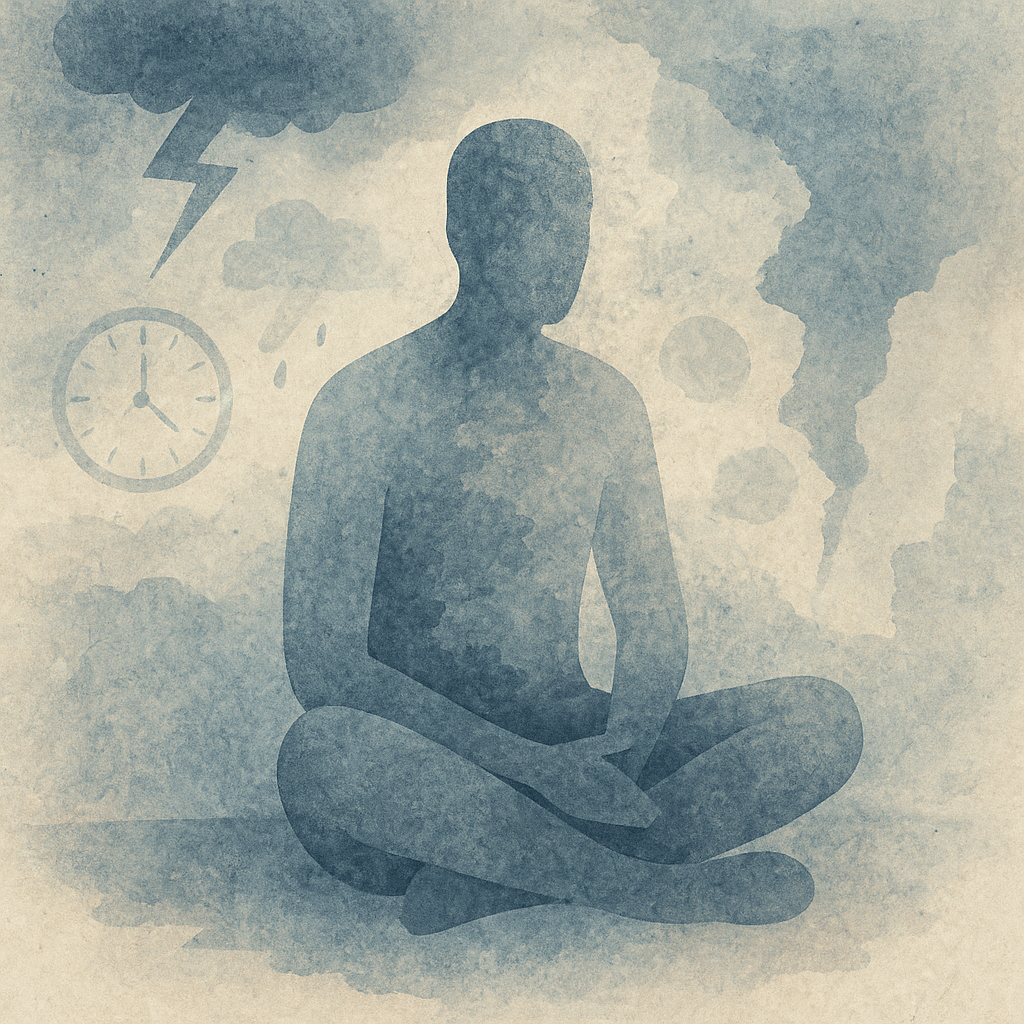Mental breakdowns can interrupt every area of life, from work and relationships to physical health and emotional well-being. For many adults, these crises come after long periods of stress, trauma, or untreated mental health challenges. Understanding what common triggers lead to a mental breakdown in adults can help individuals, families, and clinicians take early steps toward prevention and recovery.
At Khiron Clinics, we specialise in trauma-informed care and nervous-system-based therapies that focus on lasting healing. This article outlines the causes, symptoms, and support options for adults at risk of a mental health crisis.
Long-Term Stress and Emotional Pressure
One of the most common triggers of a mental breakdown is prolonged exposure to high stress without adequate recovery. Adults navigating constant pressure at work, unresolved personal issues, or caregiving responsibilities may find themselves mentally and physically depleted over time.
Common sources of long-term stress include:
- Demanding job roles or burnout from overwork
- Financial hardship or job insecurity
- Strained family relationships or ongoing conflict
- Chronic illness or caregiving for a loved one
Stress does not always result in a visible breakdown at first. Instead, it can accumulate gradually, wearing away a person’s ability to cope. Without space for rest or support, even routine challenges can start to feel unmanageable.
Stressful events from the past, especially those that were never fully processed, can deeply affect the nervous system and emotional health (Porges, 2011). Unresolved trauma is one of the major risk factors for mental breakdowns, particularly when combined with present-day challenges.
Some common experiences linked to trauma responses include:
- Loss of a loved one or experiencing a tragedy
- Childhood neglect, abuse, or abandonment
- Domestic violence or relationship trauma
- Exposure to natural disasters, accidents, or sudden life changes
When past trauma is left unprocessed, new stressors can reactivate old patterns of fear, anxiety, or dissociation. For some adults, everyday pressures can trigger intense emotional responses that feel out of proportion (Levine, 1997). This is not a sign of weakness, but a sign that the nervous system has been overwhelmed for too long.
At Khiron Clinics, we recognise these responses as deeply rooted survival adaptations. Trauma is not just stored in memory—it is held in the body. These patterns often reflect a nervous system stuck in states of fight, flight, or freeze. Without support to gently regulate and process this stored trauma, individuals may find it difficult to feel safe, connected, or fully present in their lives.
Pre-Existing Mental Health Conditions
Underlying mental health conditions can increase vulnerability to emotional crises. Depression, anxiety, PTSD, and other disorders can contribute to breakdowns, especially when untreated or misunderstood.
Some warning signs that an existing or co-occurring condition may be escalating include:
- Increased episodes of panic or social withdrawal
- Intense sadness or irritability that persists over time
- Disrupted sleep, appetite, or concentration
- Sudden loss of interest in previously enjoyable activities
Many adults with a history of mental health issues describe feeling “stretched thin” long before a breakdown occurs. When early symptoms are ignored or minimised, the path to crisis can accelerate.
Warning Signs of a Mental Health Crisis
Recognising the early signs of a mental breakdown gives individuals and families the opportunity to intervene before a full crisis develops. These signs are not always dramatic. They can start subtly and become more severe over time.
Watch for the following changes:
- Chronic fatigue or emotional numbness
- Frequent headaches, digestive issues, or muscle tension
- Trouble focusing, memory lapses, or decision-making difficulty
- Withdrawal from social situations or sudden isolation
- Emotional outbursts or unpredictable mood swings
At Khiron Clinics, we view these symptoms as the body’s signals of nervous system dysregulation.
The Impact of Life Transitions and Loss
Major life changes can significantly impact mental health, especially when paired with existing stress or emotional strain. Even expected transitions—such as moving house, changing careers, or becoming a parent—can destabilise someone’s sense of control.
Triggers can include:
- Divorce or relationship breakdown
- Retirement or redundancy
- Bereavement or grieving periods
- Relocation or immigration stress
While these events are part of life, their emotional weight can tip the scale for someone already coping with anxiety, trauma, or burnout.
How Loved Ones Can Offer Support During a Mental Breakdown
Support from family and friends often plays a vital role in helping someone navigate a mental health crisis. Compassionate presence, rather than pressure or judgement, is often what makes the greatest difference.
Ways to support someone include:
- Listening without interruption or trying to “fix” things
- Encouraging them to seek therapy or specialist help
- Offering practical help with daily tasks if they’re struggling
- Respecting their pace while staying consistently available
- Avoiding dismissive language or comparisons
Sometimes the most helpful gesture is simply acknowledging that they are not alone. When the people around them create space for honest conversations, it becomes easier to ask for help.
When to Seek Specialist Help
Some situations call for more than outpatient support or short-term therapy. If someone is experiencing a sustained mental health crisis—such as suicidal thoughts, dissociation, or inability to carry out everyday responsibilities—specialist intervention may be necessary.
You might consider referring someone to a clinic if:
- Their symptoms have not improved with regular therapy
- Their emotional state is worsening despite support
- They’ve had past mental health challenges that remain unresolved
- They are expressing thoughts of self-harm or hopelessness
At Khiron Clinics, we offer residential and outpatient programmes that focus on treating the root causes of breakdowns through trauma-informed care. Our team uses evidence-based approaches to help clients rebuild nervous system regulation, emotional safety, and long-term resilience.
If you or someone you care about is struggling with emotional distress or showing signs of a breakdown, help is available. You can contact Khiron Clinics to learn more about our specialist treatment pathways and how we support individuals on the journey to recovery.






